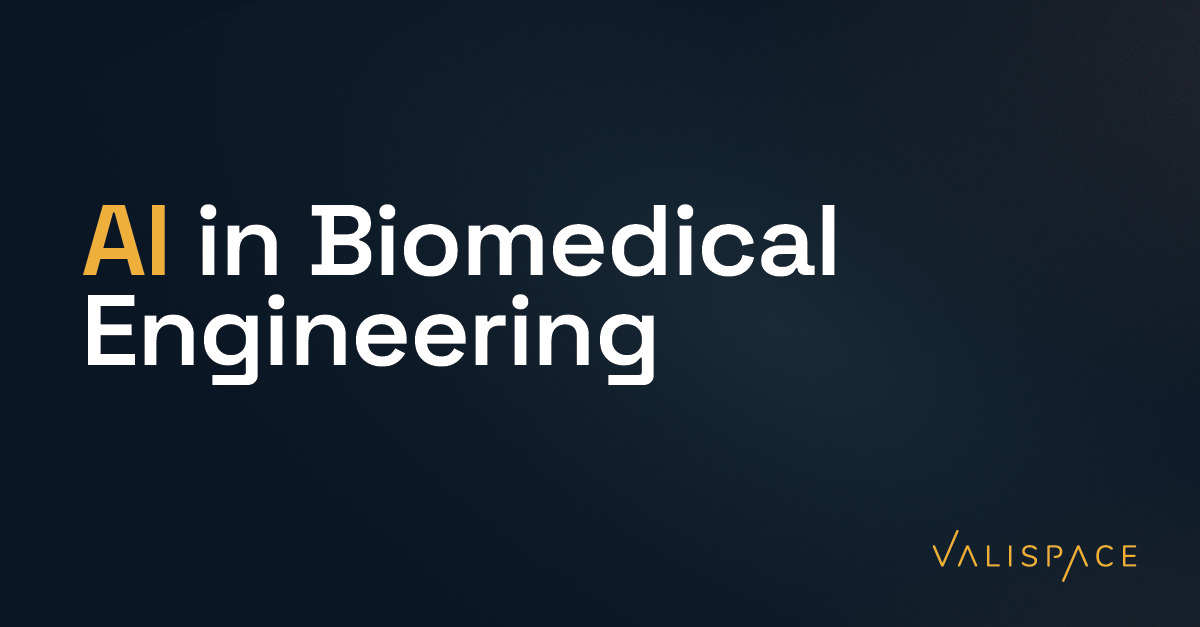
In the era of digital transformation, the integration of AI in modern engineering has brought forth unprecedented advancements. This synergy is particularly evident in the biomedical field, where precision and accuracy are paramount.
The Role of AI in Biomedical Engineering
Artificial Intelligence (AI) in biomedical engineering is more than just a technological advancement; it’s a paradigm shift. By integrating AI, engineers can handle the increasing complexity of biomedical devices and systems, ensuring precision and efficiency in design and functionality.
Advancing Diagnostic and Treatment Solutions
Enhancing Accuracy and Speed in Diagnostics
AI algorithms excel in analyzing complex medical data, significantly improving the accuracy and speed of diagnostics. From interpreting imaging data to identifying subtle patterns indicative of early disease stages, AI brings a new level of precision to diagnostic processes.
Personalizing Treatment for Better Outcomes
The power of AI in personalizing treatment plans is immense. By analyzing patient data, AI can recommend tailored treatment strategies, enhancing the efficacy of therapies and improving patient outcomes.
Innovating Medical Devices and Equipment
Precision and Adaptability in Device Design
In device design, AI aids in creating more adaptable and precise medical devices. Leveraging data-driven insights, engineers can innovate devices that not only meet current needs but also adapt to evolving medical scenarios.
Continuous Monitoring and Predictive Healthcare
AI’s role in developing devices for continuous health monitoring and predictive healthcare is crucial. These devices, equipped with AI algorithms, can predict potential health issues before they become critical, revolutionizing preventive healthcare.
The Future of Biomedical Engineering and AI
The future beckons with AI-driven innovations in biomedical engineering. These include advanced robotic surgeries, AI in gene editing technologies, and more. The trajectory is clear – AI is not just augmenting but fundamentally transforming biomedical engineering.
Key Applications of AI in Mechanical Engineering
Smart Design and Planning
AI’s application in mechanical engineering extends to smart design and planning. It enables more efficient and effective design processes, crucial in the biomedical field for developing complex devices and systems.
Automated Construction Processes
The automation of construction processes in device manufacturing, aided by AI, ensures precision and reduces the margin of error, a non-negotiable aspect in biomedical engineering.
Maintenance and Infrastructure Management
AI also plays a significant role in the maintenance and management of biomedical infrastructure, ensuring that devices and systems function optimally over time.
AI Systems Engineering Tools in the Biomedical Engineering Industry
AI systems engineering tools will play a pivotal role in biomedical engineering. These tools bring a level of sophistication and precision necessary for the development of advanced medical devices and solutions. Let’s explore a few key players in this domain, including Valispace.
- Valispace: Valispace stands out for its data-driven approach to systems and requirements engineering. It is particularly useful in managing complex projects where precision and collaboration across various engineering disciplines are crucial. Its ability to integrate system design with requirements engineering, enhanced by AI, makes it a valuable tool in the biomedical sector.
- MATLAB and Simulink: Widely used for algorithm development, data analysis, and numerical computation, MATLAB and Simulink offer an extensive environment for biomedical engineers. Their AI capabilities, particularly in signal processing and image analysis, are instrumental in developing diagnostic and therapeutic technologies.
- ANSYS: ANSYS offers comprehensive simulation tools that leverage AI for predictive analytics. In biomedical engineering, ANSYS is utilized for designing and testing medical devices, ensuring they meet the necessary safety and regulatory standards.
- SolidWorks: Known for its 3D CAD capabilities, SolidWorks also incorporates AI features for design optimization. It aids engineers in creating more efficient and ergonomic medical devices, streamlining the development process from concept to production.
- IBM Watson: IBM Watson brings powerful AI and machine learning capabilities to the biomedical field. It excels in analyzing large datasets, which is essential for research and development of personalized medicine and treatment plans.
Challenges and Considerations in Adopting AI
While AI brings transformative benefits, it also presents challenges and ethical considerations. These include data privacy concerns, the need for robust AI models free from biases, and ensuring the reliability of AI-driven systems.
Navigating the Future of Mechanical Engineering with AI
As we step into the future, staying abreast of emerging trends and technologies in AI and mechanical engineering is crucial. This involves continuous learning and adapting to ensure that the benefits of AI are fully realized in biomedical engineering.
The integration of AI in biomedical engineering heralds a new era of healthcare – one that is more precise, personalized, and predictive. As we explore these advancements, it’s important to delve deeper into related topics, which you can find in our cluster content.
